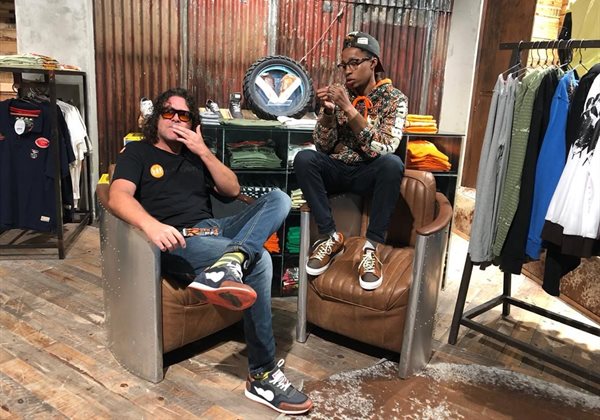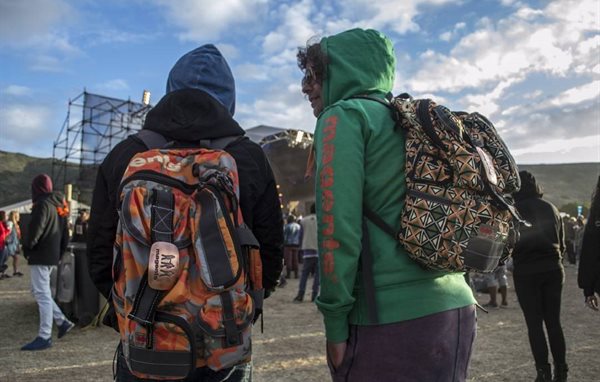Didier de Villiers founded the Magents clothing brand in 1992, a time when South Africa was undergoing massive change. Following the release of Nelson Mandela in 1990, the country held a referendum on ending apartheid on 17 March 1992.
"The excitement filtered from politics into music," recalls De Villiers. "Musicians were expressing their newly-found creative freedom in a tune of hope and celebration for the country and its people. We could only capture our excitement for the South African story that was about to change through our craft – art through threads of cotton."
A new South African identity
De Villiers felt that a new South African identity needed to be bred, one that would allow the new South African to wear who they truly are. "Clothing is an extension of one's personality. We wanted to introduce a brand that would revolutionise how the world saw the authentic Mzansi spirit."
Although Magents has grown into a recognisable brand, its journey into the cupboards of fashionistas globally wasn't easy. According to the company, it came up against a local audience that was fascinated by international fashion labels and didn't quite embrace South African collections and designers. The same resistance was met from retailers who were not eager to stock a locally-produced brand over popular international names that were flying off their shelves.
"It was a testing ride from our launch in 1992, having to experience shut doors and scepticism from the market," elaborates De Villiers. "To a certain extent, we were our enemies of progress because we refused to compromise on the quality of our fabric and the price of our product. We believed we had created a brand that identified with the cultural revolution that the country was experiencing at the time."
Taking the world by storm
The first Magents clothing store was opened in Randburg in 1999, and interest in the brand started to grow.
"Glen Lewis would be seen on TV with a bold white t-shirt that had three orange circles," says De Villiers. "The same circles would be seen painted next to notable buildings such as the famous Ponte City building and Joe Slovo Street in central Johannesburg. The circles would also be spotted in Soshanguve and Cape Town and that only aggravated the interest in the brand. 'Is it a record label?' people would ask."
In 2003, the label participated in its first international show in Vegas, The Magic Show. Here it drew interest from stockists abroad, and Magents started making inroads in the international scene.
"Back home, we had launched our second store strategically located right next to the YFM studios – at the time – in Rosebank's The Zone," elaborates De Villiers. "The store was set up in a way that YFM guests would have to go through the shop before getting into the studios. Naturally, we picked interest from respected music industry captains including Bongo Maffin, Vinny Da Vinci, Glen Lewis and most of the house and kwaito enthusiasts."
The brand also started to carry African themes that embodied cultural representations from countries like Egypt, Morocco, Kenya and Zimbabwe.
In 2004, a chance meeting with a French scout who introduced the brand back home led to Magents featuring on the shelves of top boutiques in France such as Galeries Lafayette, Printemps and Le Bon Marché – which stocked designs by Gucci, Prada and G-Star, to name a few. More international shows followed including Bread & Butter in Barcelona and the Projects Show in New York and Las Vegas.
Looking forward
Over the years, Magents has evolved from a clothing label to a change-maker in fashion, entrepreneurship and philanthropy. It has helped black-owned factories set up shop and operate efficiently after moving its production facilities to South Africa permanently. It has also amplified its voice in the prevention of gender-based violence locally and internationally with a series of interventions rolled out in SA, Dakar and China.
Looking to the future, a total of three to four new stores will be launched in South Africa.
"While the only consistent occurrence in life may be change, our constant will always be our commitment to a quality product. We will still be a proudly South African brand that exports only the best of products to the overseas territories ensuring that Mzansi is adequately represented," concludes De Villiers.



































